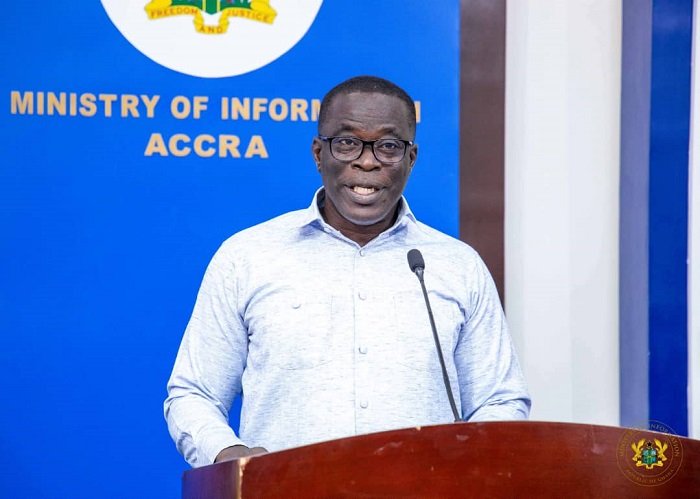A total of GH¢345 million has been saved through a nationwide payroll monitoring exercise conducted last year by the Fair Wages and Salary Commission (FWSC).
The exercise, which covered 120 public sector institutions, aimed to reduce the wage bill and promote transparency in public sector employment.
The Minister of Employment, Labour Relations, and Pensions, Mr Ignatius Baffour-Awuah, disclosed this when he took his turn at the Meet-the-Press briefing organised by the Ministry of Information in Accra yesterday.
He stated that the payroll monitoring exercise led to a significant reduction in the wage bill, resulting in substantial savings for the government.
Mr Baffour-Awuah said the Ministry, with support from key stakeholders, had resolved all industrial disputes that threatened industrial harmony in the country over the past seven and a half years.
He also mentioned that key sector legislation, including the Labour Act, 2003 (Act 651), was being reviewed to ensure they met modern workplace needs.
The new Labour Bill, he said, included reforms such as prohibiting certain actions of private employment agencies, extending maternity leave, and enhancing protection against violence and harassment in the workplace.
The Minister expressed the government’s commitment to maintaining industrial peace and harmony, and to ensuring the welfare of both workers and employers.
Mr Baffour-Awuah stated the government’s dedication to maintaining high levels of income for workers and pensioners.
He cited the highest adjustment of the Base Pay since the introduction of the Single Spine Pay Policy in 2010 and a 25 per cent increase in monthly pensions for SSNIT pensioners.
Among other achievements, he mentioned the strengthening of the operational capacity of the Labour Department, job creation initiatives, and improvements in pension management.
The Minister cautioned jobseekers to be wary of fraudulent employment schemes and stressed that the Ministry did not handle recruitment.
During the question-and-answer session, the Chief Executive of the Fair Wages and Salaries Commission, Benjamin Arthur, explained that the payroll monitoring exercise aimed to ensure public sector employees received accurate salaries, allowances, and benefits.
He added that the exercise uncovered several anomalies, minimised ghost names on the government payroll, and enhanced public sector productivity.
“Overall, the payroll monitoring exercise has contributed to a more efficient, transparent, and accountable public sector payroll management system,” he concluded.
BY AGNES OPOKU SARPONG

